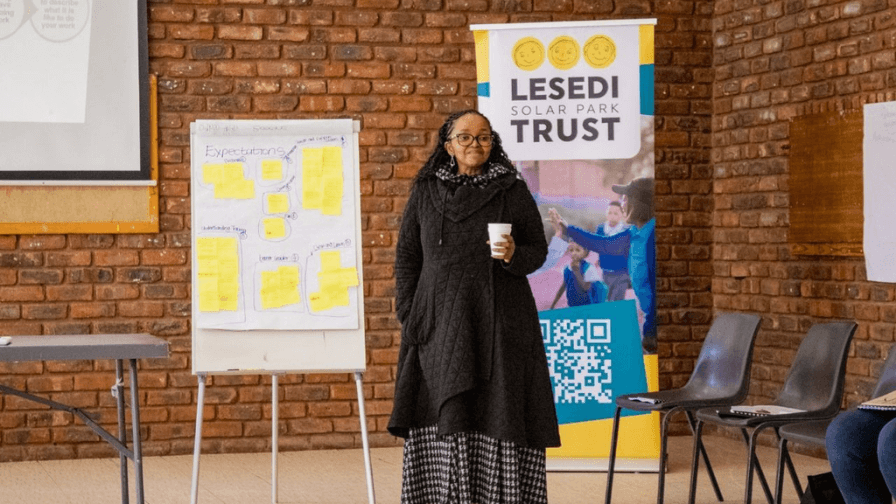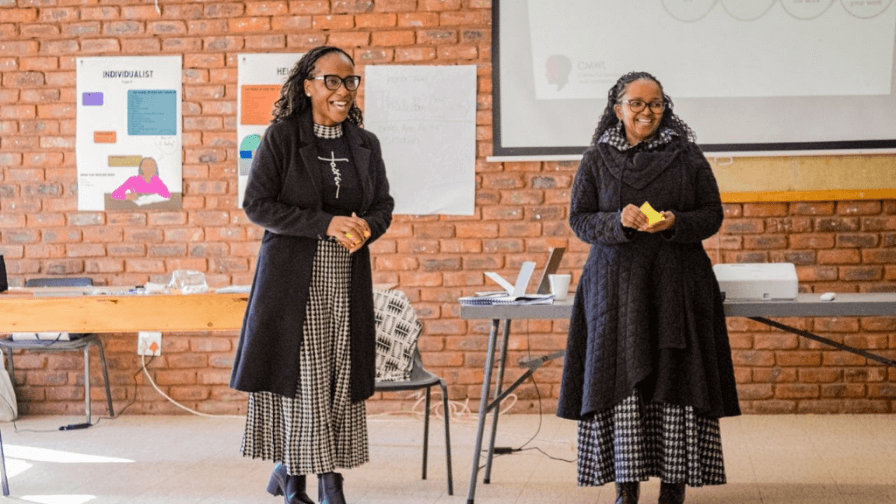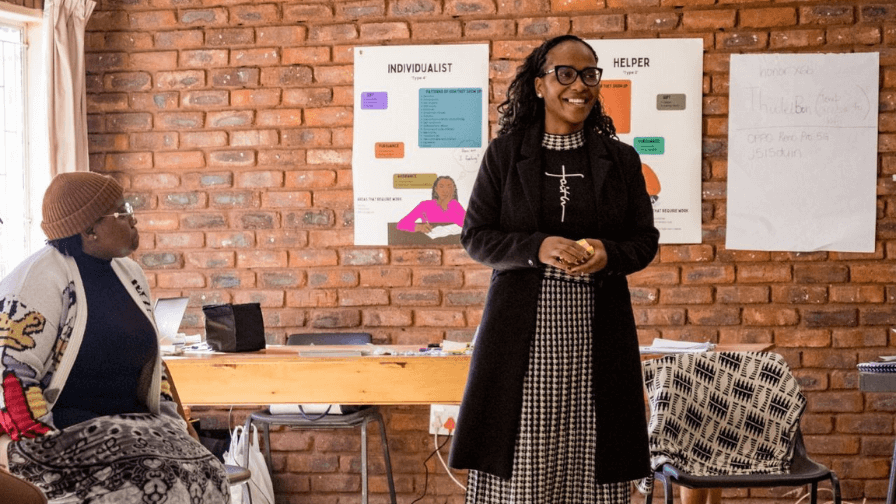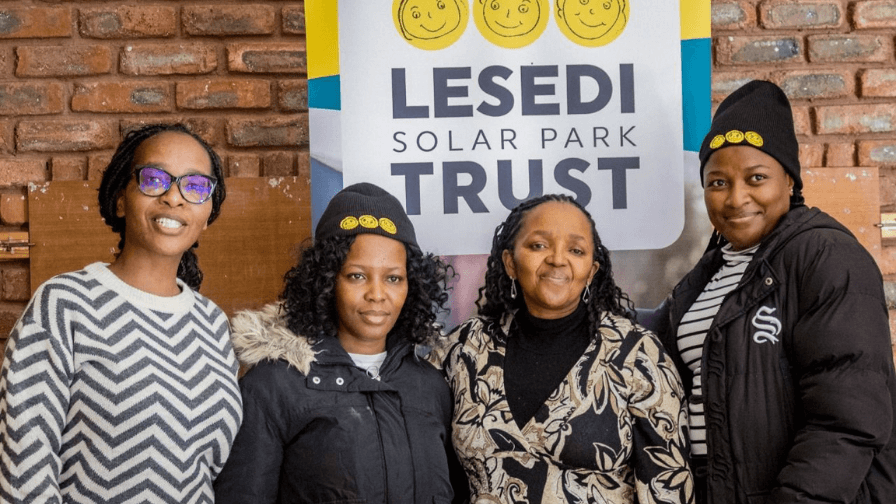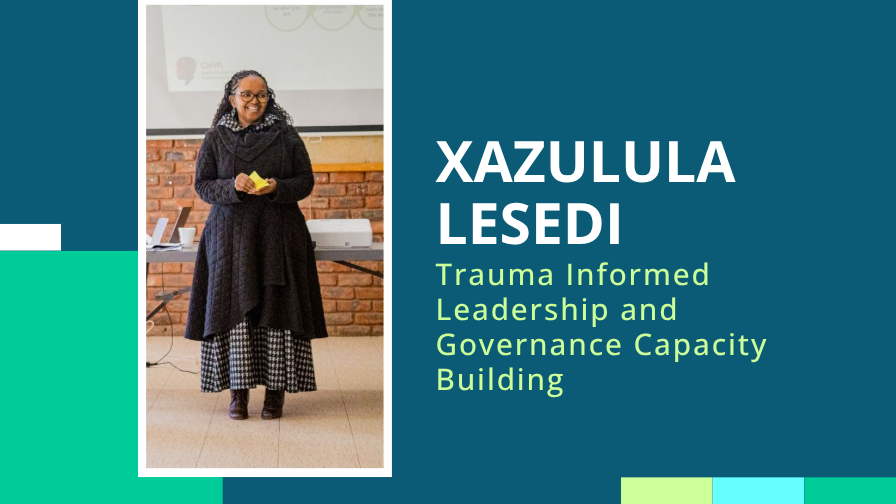INSPIRE, in partnership with the Centre for Mental Wellness and Leadership (CMWL) and with support from DGMT through the Xazulula project, conducted training sessions on Trauma‑Informed Leadership and Governance with the Lesedi Solar Park Project Community Trust team and its implementing partners around Postmasburg, Northern Cape.
The Xazulula project, translated as “Resolve”, aims to support practitioners and leaders in communities to identity, recognise and respond to trauma and woundedness that hinders effective community development.
Three separate trainings were conducted with a total of 61 participants from Lesedi Solar Park Project including local NGOs, implementing partners, Social Performance Practitioners, the Advisory Committee, and the Community Trust were trained. This was 22% more than the initially planned number of participants. The number grew due to the positive feedback received from the first round of training.
The overarching objective of the training was to build Trauma-informed leadership and governance capacity to strengthen community leaders. Through the condensed training module, the following sessions were covered:
- Session 1: Building a Business Case for Trauma Informed Leadership and Governance within community leadership in the Renewable energy industry in SA (Paradox, Neuropsychology, Psychological Architecture)
- Session 2: Digging into Self: Exploring personal identity and experiences through tools such as River of Life and the Enneagram.
- Session 3: Understanding your community and/or organisational context.
- Session 4: Introduction to Trauma Informed Approaches to Leadership and Organisational Development
These sessions were particularly important for the Lesedi team, given the context of the communities they work with in Postmasburg. The woundedness of these communities is rooted in generational inequality, and disrupted family life. The influx of migrants into the communities in search of mining related opportunities contributed to scarcity, mistrust and competition for scarce resources, leading to eroded potential for collaboration between community members and organisations. Moreover, mining related retrenchments further deepened collective anxiety and instability amongst community members.
The social ills existing in Postmasburg such as unemployment, food insecurity, demotivated youth, high substance abuse, and teenage pregnancy are not just social problems; they are expressions of community level trauma that erode cohesion and resilience.
Some of the key takeaways noted from the series of training sessions:
- Participants left with a clear understanding, that unaddressed trauma undermines programming, governance, and weakens collaboration.
- Unresolved trauma negatively impacts leadership behaviour and decision-making.
- Participants expressed their commitment to longer-term inner work, which is the foundation of effective leadership.
- The said inner work should inform overall programming and resource decisions.
- Leaders often carry the heaviest emotional fatigue yet receive the least support.
Some of the possible ways in which such trainings can be taken forward include:
- Explore how the work could be scaled up through equipping social workers and coaches who have undergone their own healing journeys to sustain and scale this work locally.
- Aligning leadership and staff in shared healing work to rebuild organisational cohesion.
- Supporting leaders to prevent burnout and “bleeding onto others” through on going coaching and counselling.
Reimagining governance systems, such as performance, appraisal, and decision-making frameworks, through a trauma-informed lens to foster more compassionate and effective leadership. Key learning from the Xazulula initiative in Lesedi is that effective leadership and good governance in wounded contexts, begins with healing. Unaddressed trauma: whether personal, collective, historical or institutional shapes how leaders make decisions, relate to others, and respond to conflict. Healing creates the inner capacity for empathy, reflection, and fairness that effective leadership demands. Healing is not separate from leadership work; it is leadership work. The positive and oversubscribed training sessions were just one proof for that. Lastly, investing in inner work is a building block to ensuring that development efforts in wounded context are impactful and sustainable.
